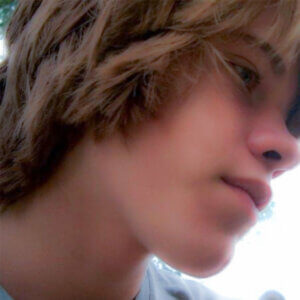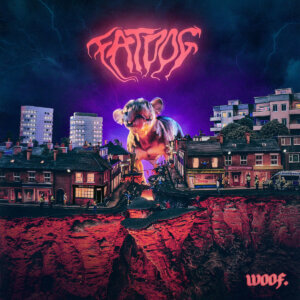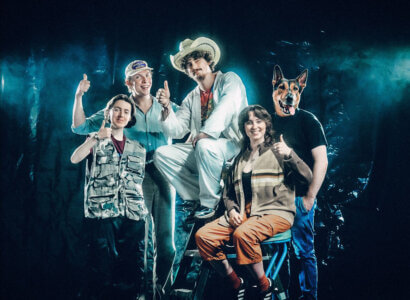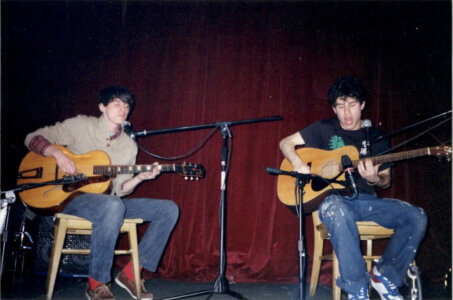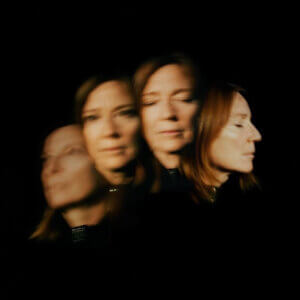Animal Collective Still Have Plenty In Them
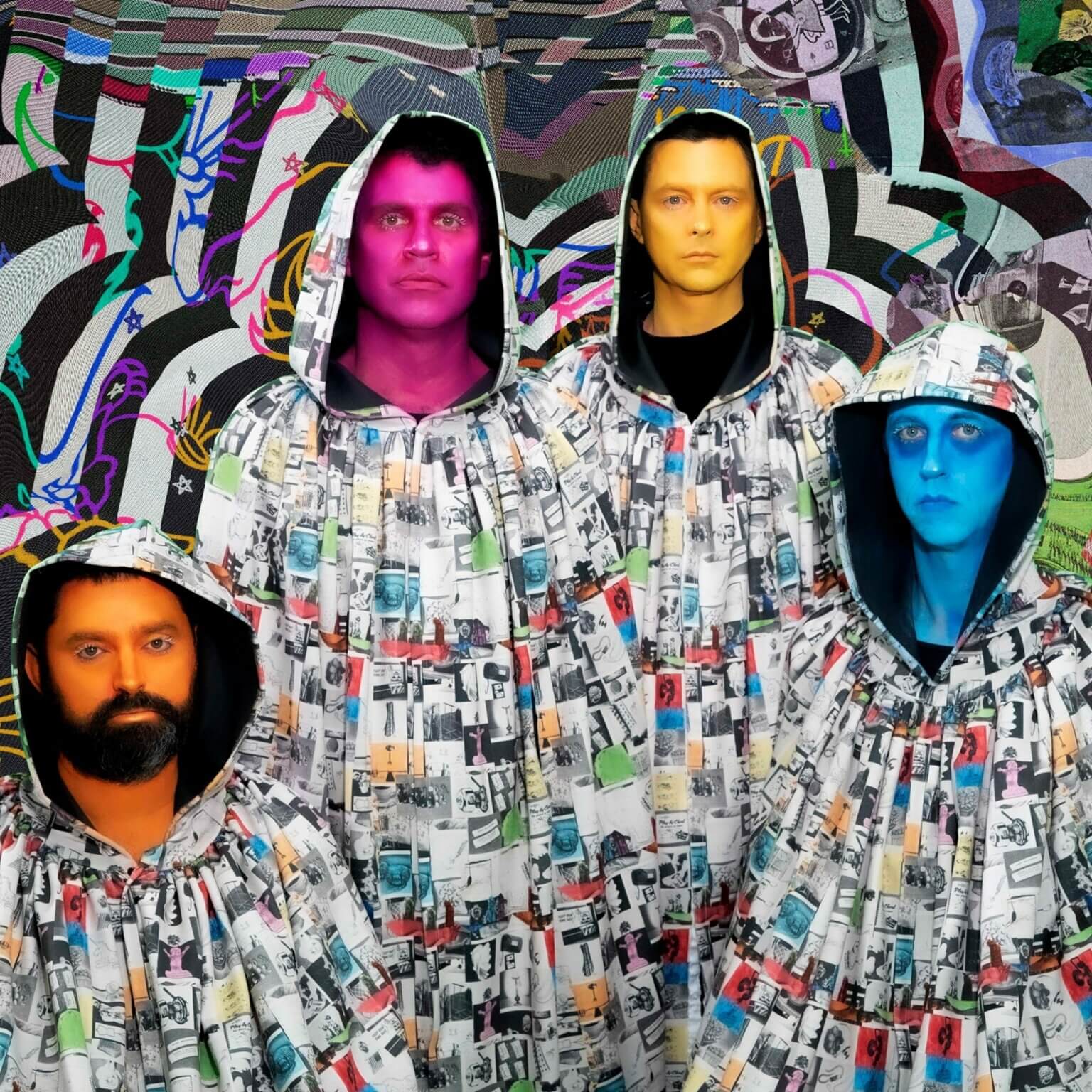
Animal Collective have had a hell of a year. Their solid new album, February’s Time Skiffs, was something of a late stage highlight for the band. Marking the return of the elusive instrumentalist Deakin, it’s the first time the entire four piece has appeared on a record in quite some time. Musically, it’s also surprisingly gripping. Where the albums that preceded it–most notably Painting With and Meeting Of The Waters–were pretty murky and ambient, the structured songwriting on their latest evokes the gripping warmth of breakout records Feels and Strawberry Jam.
In the wake of the release, they’ve stayed busy on the road, playing shows around the world and gearing up for an extensive tour that will have them playing everywhere from Central Park in New York to small mining towns in rural French Canada. On the eve of their Seattle performance at Fisher Green Pavilion, we talked to Deakin (aka Josh Dibb) about the making of Time Skiffs, Animal Collective’s upcoming Canadian dates, and some of his favorite memories he’s made with the crew along the way.
Northern Transmissions: This is your first record with a full band lineup in a long time. I’m curious what got you all back together, and how it’s been so far. Have there been any challenges with getting all four of you playing together? Have there been any particularly fun parts?
Josh Dibb: That question alone could keep us here for probably 45 minutes. I feel like the flow of coming back to being in that place was pretty organic. Even though I stepped away from stuff during Painting With, we continued to work on projects during that time. I engineered and helped produce Eucalyptus with Dave and then Brian and I did the soundtrack to this movie called Crestone and there was this Tangerine Reef project that Dave and Brian and I did. So we were just kind of, like, feeling juicy.
During the time when Painting With was happening, I lived in New Orleans for a period of time. I really fell in love with that city in a really profound way. I think it’s a really incredible place. I had developed a relationship with this group of organizers and artists down there who run this larger project called The New Orleans Airlift Project. But they have this one specific thing called The Music Box Village, which is this really amazing permanent outdoor site they have, which is sort of a venue, that they have curated with different artists over the years to build sort of house structures. Everything is made from salvaged materials and they’ll have different shaped huts or, like, porches or multi-leveled walk around structures that are all built in a way where the structures are in and of themselves musical instruments. It’s a salvaged/steampunk kind of aesthetic, but in a really amazing way. Like, you walk up steps and each step is connected to a midi trigger and those midi triggers. Or an entire house is made of handmade chimes that are all tuned to different things, or there’s harps built into the wall that have pickups and go through a delay pedal into a shitty speaker. I had developed a friendship with them, and Dave also has a really strong connection to New Orleans.
They wanted us to play a show, and this was at the end of the Painting With touring cycle. And Dave and Brian and I really wanted to do it, and Noah was kind of wrapped up in Buoys stuff at the time. So, rather than do a classic Animal Collective set at this place, we wanted to do something that kind of left a lot of space open for these instruments to be used within the context of the show. So we got together and wrote an hour’s worth of new music, just the three of us, that had a lot of air and space. We had some idea of what these instruments could do, and we wanted to incorporate them. We also wanted to collaborate with local musicians in New Orleans, as well, since that’s a big thing that this group likes to encourage is cross-scene collaborations. So we went down to New Orleans for a week to prepare for this show and we brought an hour’s worth of music and it just went really well. It was a really amazing experience. It’s a much more organic environment to play–it’s not a standard club, and it’s a little DIY in its own way, y’know? Like, the PA wasn’t the most amazing PA. It just felt really kind of like a profound thing. And a bunch of the music we wrote for that is stuff that’s been either on Time Skiffs or the next record, which we’ve already recorded as well.
A bunch of those songs felt like keepers, for sure. So we sent them to Noah, and he really liked a lot of them. It had this new energy and this new vibe. Dave and Noah were touring for the Sung Tongs anniversary over the summer of 2018, so neither of them could really do stuff. And so we couldn’t get together as a foursome until the summer of 2019, which is kind of when our schedules matched up. And so we took all the demos and music that we’d made for that Music Box show–and Dave and Noah and I had written some new songs as well–and we got together for almost a month. We rented a little house outside of Nashville in this little town called Leaper’s Fork. The living room was a great place to set up and jam, so we jammed together every day for three and a half weeks or something. We worked through this batch of 18 or 19 songs. Honestly, by the end of that session, everything was ready to be recorded. And then we did a small West Coast tour that fall, and the shows went really well. And then we got together in January of 2020 for two weeks, because we had a couple of new songs. We jammed a bunch then, and everything just worked really well. During that time, I feel like there was a very–and I guess this is easy for me to say, having not been part of Painting With–but there was a very easy return to some sort of energy that has been present for us since high school. The way things came together felt very natural and organic, and there was a lot of, like, improvisational jamming that happened. I’d set up a basic recording situation there, just to document what we were doing and keep track of stuff. So I’d record the jams.
And so after that January 2020 session, we decided it was time to go record all of this stuff. And we were in conversation with this dude Russ Elavado, who is this old school engineer/producer who’s most well known for D’Angelo and Erykah Badu. He’s the guy who did Brown Sugar and Voodoo and, like, a Common record–a lot of that neo-soul stuff in the ‘90s was, like, him. And the whole thing that made those collaborations work is, specifically with D’Angelo, he’d been an assistant engineer. Him and D’Angelo would have these conversations where they were wanting to record new music, but also they were working a lot with, like, sample based stuff that Dilla had made and tracks like that. And they were having this conversation about, like, “Why is it that all these samples that Dilla had sound incredible, and then when we record stuff, it just doesn’t have that feeling to it?” And they realized that it’s just because that stuff was recorded in the ‘60s and ‘70s, and it was all of this analog gear and these incredible microphones and straight to tape and Neve consoles and incredible compressors. And Russ was already a head for that kind of music, and had grown up listening to all of the stuff you would imagine: Floyd and Hendrix and whatever. So he already had a really strong ear for that stuff. In the ‘90s everything was ADATs and ProTools, and so everything was very digitally based. And he committed himself to just becoming, like, a pure analog sorta dude. And that’s his whole thing.
Anyways, our aesthetic for this batch of music felt very tied to that. I think we really felt–certainly more so than Painting With on some level… Like, “Live band in a room, Noah playing a stripped-down trap kit, really simple, like, almost straightforward, way of playing.” Dave was just playing electric bass. I was playing keyboards and focusing a lot on, like, chromatic percussion palettes. Everything had this very analog feeling–Brian started to play the hurdy gurdy. We just really wanted that kind of sound, and we talked to a bunch of people, but we realized Russ is who we really wanted to do stuff with. So we started talking to him and he was really psyched about it, and we probably would have been in the studio by, like, April or May of 2020. And everyone knows what happened then.
So that’s kind of the hard, challenging thing. In terms of writing music, arranging it, playing it together–it didn’t feel like things could be going smoother. But when that happened, it really complicated things. We couldn’t schedule the recording dates and there was no certainty. Everyone was, like, “Oh, in two months maybe things will go back to normal.” And it kept just stretching on and on and on, and it felt, like, “This isn’t ever gonna change.” And our manager kept on saying we should figure out how to record remotely. But we were, like, “No way, this has to be recorded in a room.” But obviously Noah couldn’t fly over, so we just couldn’t figure out what we were gonna do. So just to keep from losing our minds, we decided to take a bunch of the improvisations that we’d recorded from those Weaver’s Fork sessions and use them as foundations to write songs on top of them and add further arrangements to them. So we ended up making this EP called Bridge To Quiet. Three of the tracks are made from improvisations, and then Dave wrote one fresh song that was built from scratch. Dave and Brian did a more, like, musique concrète sound collage piece, and even though that wasn’t the exact process we went through for Time Skiffs, it felt really good to do. We felt it was this way the four of us could stay interconnected and communicate regularly and just feel connected to the music, even if we weren’t in the same room. It gave us this sense of, like, “Maybe we can do this.” As the year stretched on and it just became clear that there was no end in sight and that it wouldn’t be easy to travel or make it work, we just decided to give it a shot.
And so we looked at all the songs we wanted to record. And there was some stuff where it was, like, “There’s no way this is going to be done until we can be in a room together.” But there’s, like, 12 of them, I think, that we felt like we could give a shot with a click track–which we’d wanted to avoid. And so we started recording in August of 2020, and it took us a really long time because it was a slower process. I think we did tracking until the first week of December 2020. It was almost a three and a half month tracking process, which is pretty long. But, again, it felt like it was coming together pretty easily, even though it was taking a long time. I think the process felt very supportive to everybody. It gave everyone time to focus on their home studios and process and the arrangements of all the songs and feel pretty locked in. It didn’t feel like we were reinventing the wheel too often. Most of it was just honing in on the sounds and getting them to fit the way we wanted.
Once we were done recording, we didn’t want to work with Russ at that time because we felt like the whole reason to work with him was to be able to record in a room. So we didn’t want to mix with him, so we ended up mixing the record with this incredible woman Marta Salogni. That took a long time as well. So we recorded the record and mixed it and everything over a period of 18 months where we didn’t see each other the entire time, which was nuts because we’d been really engaged. I got to see Dave and Brian a couple times during the pandemic, minimally, but we didn’t see Noah at all. And then in August of 2021, we made plans to get together in Asheville for a month and jam together and do another tour and get ready to record the songs we hadn’t recorded yet with Russ at that point, so we got together. It went great. We did some music videos and finished all the writing we wanted to do on the rest of the songs that were left and made scheduled recording dates with Russ, and that happened in December. We went into the studio with him in Brooklyn, and that was amazing. Like, one of my favorite recording experiences we’ve ever had. And now we’re just on tour a bunch, supporting Time Skiffs. I feel like everything is blossoming and flowing. It’s good.
NT: I’m curious. You mentioned that, with having the record come to life over the pandemic, how you were frustrated by that. I’m curious if at this stage in the game you’re all doing Animal Collective full time, or if you have other side things you do outside of music.
JD: We definitely have other things we do. Me, Dave, and Brian all worked on another soundtrack this winter for an upcoming A24 film. We’ve been trying to get into more soundtrack work. It’s just a really cool way to tie our musical sensibilities in a way that is very much us.
One thing I do outside of music, that I did a lot over the pandemic, is I’m a carpenter. I spend a lot of time doing that when there’s a lot of downtime. One of the reasons I love it, and have for many years, is that it’s kind of this, like, other mentality from what it is to be creative in the context of being a songwriter, Animal Collective or solo or otherwise… in that world, it’s always felt like the creative process is this endless universe of possibilities. You can go in any direction, and as a carpenter it’s been this other skill, thinking of things in terms of problem solving and limitations and sort of, like, the meditative process of project completion.
Doing score work has been this meeting of those two worlds in a certain way. It’s still doing all the things we do musically, but in service to an image that you’re watching and a director that you’re working with. It’s in the same way that a carpenter or someone would be, like, “I want to hire you to build a staircase.” And you’d be, like, “I know how to build a staircase. Do you want this or do you want that?” You’re more of a craftsman than a songwriter, if that makes sense. A bunch of us want to be doing a lot more of that. There’s other little musical projects. Dave is always busy with something musical. He’s definitely been working on more solo music, and some collaborative stuff around Asheville, on and off. Obviously, Noah was busy working on solo stuff with Pete Kember during that time, which is all coming out right now.
NT: It’s so good.
JD: Yeah, it is super good. I feel like at this point, we all really want to stay busy as much as possible. I don’t know if there’s much outside of music that people get up to, other than me, with the carpentry stuff. I know Brian’s been doing a lot of mutual aid work, which I think he’s really passionate about and also a little shy about. I think he just doesn’t want it to be a thing of being a person in a band who’s bragging about their mutual aid work. He’s been doing a lot of Narcan distribution work, and he does Narcan walks once a week when he’s home in DC. He can train people to work with Narcan now and works with a group that does distribution and also does food distribution.
NT: You sort of alluded to some of this in previous answers, but where are you all living now? I know Noah’s in Portugal, but other than that I don’t know where y’all are based. I’ve gleaned that it’s all over, though.
JD: I live in Baltimore right now. I moved back there when we worked on Centipede HZ. there. We all moved back to Baltimore in 2011 to work on that record. I ended up staying–other than the brief period of time where I was in New Orleans–I’ve been there. I feel like I’m close to maybe leaving there, but it’s hard to say.
Brian lives in DC, and he’s been there for a really long time now. Him and his family live there. Dave lives in North Carolina.
NT: Very different type of question, but a lot of the sounds you’ve employed over the course of your career are very alien and otherworldly. I know that there’s a lot of sampling involved with that. I’m wondering if you have any favorite pieces of gear that you’ve made music with.
JD: I feel like there’s so much. Part of it, in a way, is always looking for new ways of doing stuff. A thing for me in general is being really into pedals, and always finding new pedals and ways of plugging them in to get to a different place. There’s always been an interest in trying to find ways to make things that are satisfying without them seeming traditional. But I don’t know if there’s any, like, favorite thing.
I think we’re always looking for a new flavor. That’s part of what we try to bring to each album era, as well as changing out things from the past. I think there’s this part of what we found when we were younger and really discovering improvisation as a way of writing and a way of relating to each other, like, getting in a room and hitting record and seeing what happens over the course of 45 minutes. There’s this process of discovery that comes from that, where you’re searching for something and you’re surprising yourself and each other. I think, in a way, we always try to create situations or work with musical gear that opens up the portal to that kind of energy. If you get too used to working with a piece of gear, in a way that almost becomes its own detriment. There’s something really amazing, too, about mastery over one thing. But I think in some ways there’s this interest in working with something that you don’t fully understand yet. It means you’ll discover something that might be really surprising.
NT: Cool! So, you guys have been a band for upwards of 20 years and started out as kids and now you’re full-fledged adults. I’m curious how it’s been approaching the band now vs. then, and if you have any favorite memories from along the way?
JD: I’m sure the answer would be different for everyone, so this is definitely a very personal answer. But a lot of it has to do with personal growth as a person. A lot of my ways of relating to music and to creativity and being in a band with some of my best friends are very different from when I was 16 and when I was 22 and when I was 28. It’s been a long, slow process of dismantling ego stuff. When you’re in your 20s, I felt a lot of need to be seen in a certain way that overshadowed the process itself. Maturing as a person in all my relationships has been learning to be more present and less worried about what my ego needs and wants and when I do that, I open up portals to a greater range of possibility and engagement. I feel more present as a musician and as a member of the band now than I probably ever did, and I really love that. It’s really great.
That being said, there are nearly three decades of favorite experiences that go back to creating the band. I’ve been playing music with Noah since I was 12 or 13 years old, and I’m 44 now. So it’s been a really really long time. One thing that I’ve thought about, which maybe is a classic thing for bands that do stuff for a really long time, is there was this certain entity that existed when we were really really young and going on our first tours and were really, like, borrowing a minivan from Noah’s mom and hauling ourselves across the country and playing to five people a night. The stress and exhaustion of that, but also living the dream of it. It was such a thing, in ways that were good and in ways that could at times be challenging. We were just on top of each other, and there’s something really pure about that.
A couple years ago, Dave put out that Cows On Hourglass Pond record. And the music was all him, 100 percent. But he wanted to tour with it. He had me and Jeremy Hyman–who was the drummer in the band for the Painting With era, but he’s just an old Baltimore friend, and had played with Dave in a previous solo era as well, the Slasher Flicks era. But me and Jeremy learned all the songs from Cows and a lot of old Dave songs and went on the road. It was just the three of us in a minivan for a month, driving across the country. Like, no crew. No trailer. Just three dudes in a van showing up for soundcheck. I feel like having that experience reminded me of this really pure thing about why I like playing music. Like, right now I’m on a bus. This is also really great. I feel like that’s translated into what we’re doing when we have a big crew. There’s just depreciation for the purity of this really basic thing, which is just that I want to be with my friends and show up and play a show.
NT: That was a super interesting answer. I have just one more question. You have a Canadian tour coming up, and I’m curious how your experience has been touring there in the past and what you’re looking forward to with this tour.
JD: I’ve always really liked going to Canada. I’m excited about this one because we’re playing a few cities that I’ve never actually been to before. So that part’s just cool to me. There’s a lot of things I really love about it. It’s generally pretty beautiful up there. Every city has its own vibe, and I’m psyched to go to Vancouver tomorrow. That’s a similar beauty. It has a lot of West Coast integration of mountains and nature into the city. There’s so many things that feel the same as here, but with these fundamental societal differences. It’s this hybrid between Europe and the US. There’s something to the cliches about the kindness of Canada and also the more socialist kind of approach to how they think about government and population and how those things interact. Any travel can be eye opening, but it’s so close and I think it almost feels like the same thing if you squint. But to know what those circumstances are is really interesting.
Latest Reviews
Tracks
Advertisement
Looking for something new to listen to?
Sign up to our all-new newsletter for top-notch reviews, news, videos and playlists.





